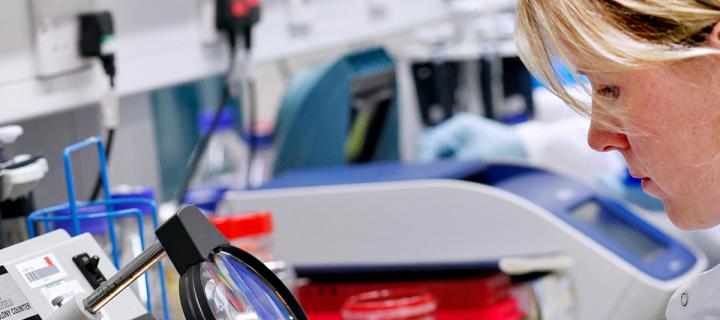Structure of the PhD Programme
Description of the first year MSc by Research degree and subsequent PhD project
Year one: MSc by Research in Hosts, Pathogens and Global Health
In the first year of the Programme, students carry out a MSc by Research degree in Hosts, Pathogens and Global Health. Students will complete five courses worth 180 credits to complete the Masters programme.
Scientific Metholodogies – 10 credits
PhD Project Proposal – 20 credits
Research Project in Molecular Phylogeny and Epidemiology – 50 credits
Research Project in Molecular Biology and Immunology – 50 credits
Research Project in Evolutionary Biology and Ecology – 50 credits
Rotation projects and teaching
There are three Rotation Project courses in which the students will have the opportunity to undertake 11 week original research projects based in each of the three themes – Molecular Phylogeny and Epidemiology; Molecular Biology and Immunology; and Evolutionary Biology and Ecology.
Students will sent details of the projects available in the month prior to arrival in Edinburgh and will then decide on the first rotation during their first week on the Programme.
The rotation projects will be combined with teaching in each theme which will allow students from a range of different backgrounds to acquire sufficient knowledge to undertake any of the PhD projects offered during years 2 - 4 of the Programme.
At the end of each Rotation Project, students will write up a report of their work and give an oral presentation of their findings.
In early July, students will select their major research project from a choice offered by potential supervisors, and will spend July-August preparing a mock grant application detailing their chosen project.
The final element of the first year MSc programme is an assessed Scientific Methodologies course which will run throughout the year.
Years two to four: main PhD research project
During the three main years of study, projects shared between Edinburgh-based supervisors and their international collaborators will provide the opportunity for some students to pursue research projects in a disease endemic setting.
Projects that link disciplines (for example, evaluating molecular or immunological reagents in an epidemiological study), will also be strongly encouraged.

Trans-skills training
Through all four years of the programme there will also be time set aside for students to take courses offered by the Institute for Academic Development at the University of Edinburgh and the School of Biological Sciences Graduate Programme. These courses will cover such topics as project management, how to write a research paper, to ensure that students are equipped with a wide variety of skills to help them maximise their research potential.


